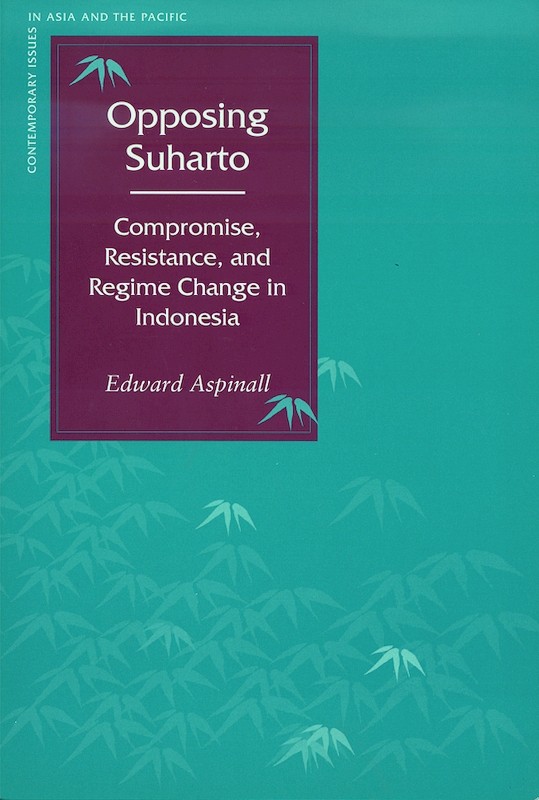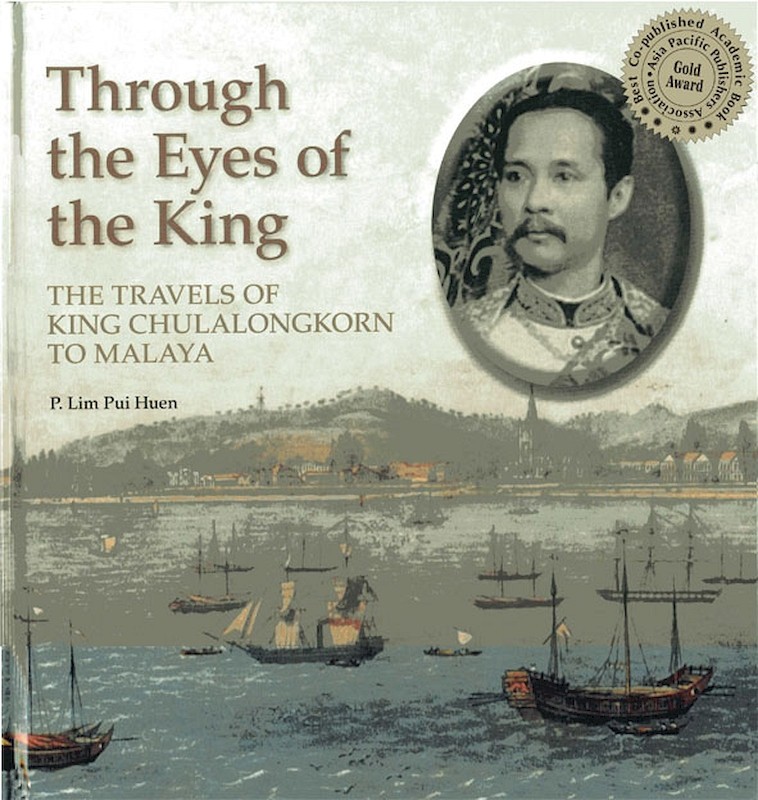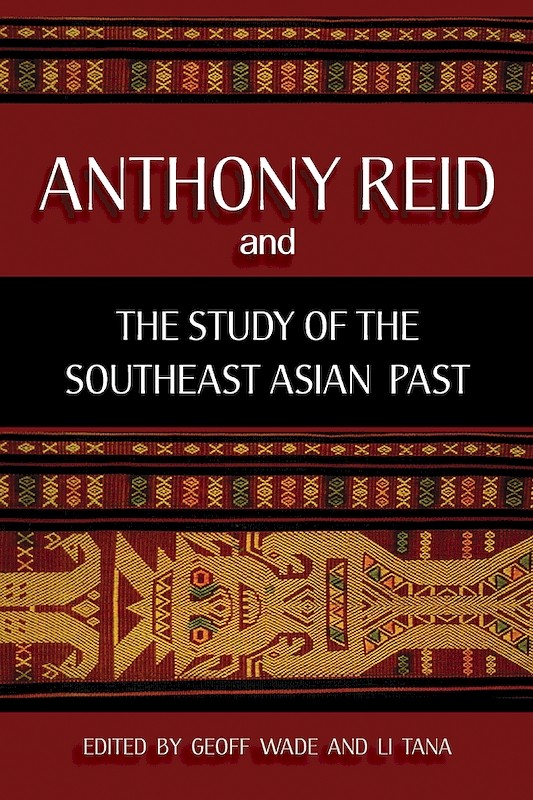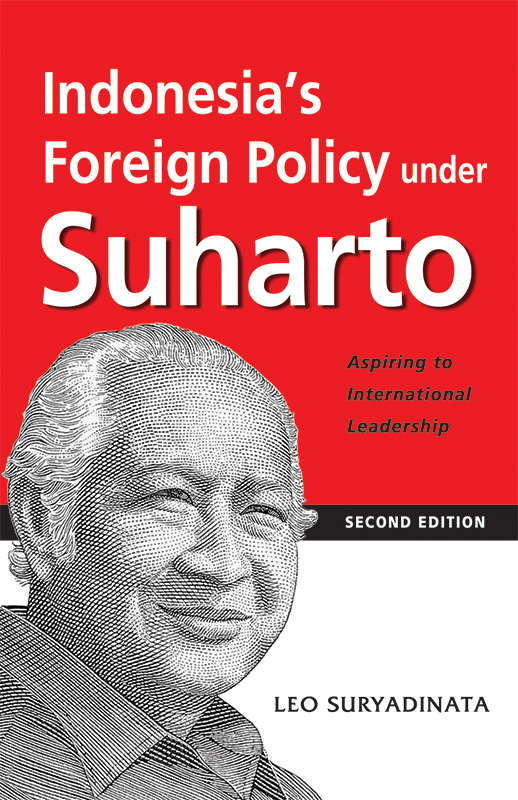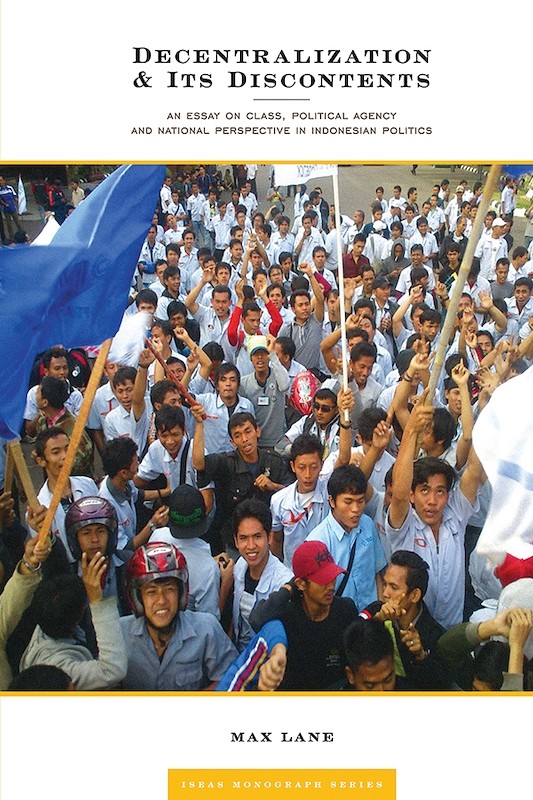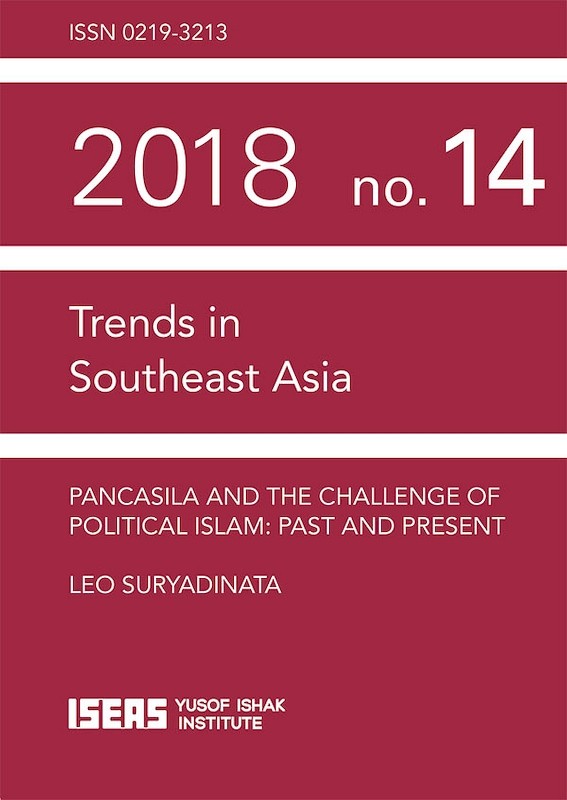Liem Sioe Liong's Salim Group: The Business Pillar of Suharto's Indonesia

Reviews
The Economist (U.K.), “What to Read on Indonesia”, 13 February 2024:
“To understand how business and politics intersect, read ‘Liem Sioe Liong’s Salim Group’. The book relates the history of Indonesia under Suharto using as its frame the commercial conglomerate that was then the country’s most powerful. It traces the life of Liem Sioe Liong, who was born poor in China and escaped conscription by fleeing to Indonesia on a cargo ship. He built the Salim Group, which has interests in many industries, including construction, coal and forestry. It owns Indomie, one of the world’s biggest makers of instant noodles. Enriched by interviews with Liem and his son Anthony, who inherited the business, this is the best history yet of the sort of Indonesian conglomerate that remains a central player in the country.”
Professor Richard Robison, Pacific Affairs:
"Numerous academics and journalists have written about Liem Sioe Liong. This is because it is not possible to discuss or to understand the political and economic history of modern Indonesia without dealing with this pivotal figure. But in this book, Borsuk and Chng have drilled down deeper than others, producing an analysis that is not only forensic in its detail but rich in its picture of the life and times of Liem. The authors paint a picture, not only of the wheeling and dealing that underpinned the rise of Liem and other Chinese Indonesian capitalists in the chaotic days following the ending of Dutch colonialism, but also of how military and political patronage and relationships with regional capitalists, including Chin Sophonpanich and Robert Kuok, became the factors of commercial success. The transition from a personalized operation to a more international, business-like and complex stage is well captured by the authors in their potraits of Liem and his son, Anthony Salim. This is an excellent assembly of data and insights that brings together an array of primary sources, interviews and other secondary material not matched elsewhere. It is a resource par excellence for researchers seeking to understand the process of capital accumulation by Southeast Asian Chinese capitalists or for those who are familiar with the people and business groups involved. Borsuk and Chng show us how Liem fitted into the broader structural architecture of Indonesia's political economy and how he had to weave his way through the crises that struck periodically, sometimes with devastating effect. We are shown how the fortunes of Liem were affected by the internal political struggles of the New Order and how he had to adjust to these. We are introduced to the threats that arose from a growing resentment of corruption and the concentration of wealth in the hands of conglomerates, which spilled over into anti-Chinese sentiment. Finanlly, we look at the Liem story through the devastating impact of the financial crisis and the struggle to rebuild the business and through the ultimate fall of Soeharto. In a sense, two books are offered here. One is a detailed explanation of the rise and transformation of a business empire. The other is a sometimes evocative story of the times of Liem.”
Anne Booth, ASEASUK News 57, 2015:
"This book written by two journalists with long experience in Indonesia is both a biography of Liem and a history of his varied business activities from the early 1950s until his death in Singapore in June 2012. But its length and scope make it more than just the story of the life and times of one man; the book is a fascinating study of the evolution of government-business relations in Indonesia from the late colonial era until the present day.”
Hal Hill, Australian National University, 2015:
"This fascinating volume, by one of the best-known foreign correspondents to have worked in Indonesia, ably assisted by his wife, narrates and explains the story of Liem Sioe Liong, also known by his Indonesian name Sudono Salim...This is business and political history at its finest: both a 'pot-boiler' and a study of amazing depth. It will surely provide material for an outstanding documentary, and perhaps even a movie.”
The Wall Street Journal:
"As head of the Journal's Jakarta bureau for more than a decade, Rick Borsuk was widely regarded as Indonesia's leading foreign correspondent. This book co-authored with his wife, Nancy Chng, who is also an accomplished author, reminds us why. It tells the fascinating story of Liem Sioe Liong, also known by his Indonesian name, Sudono Salim, who in 1938 arrived in colonial Java as a penniless migrant from southern China. In less than five decades, the business group he almost single-handedly established -- known as the Salim Group -- became the largest business conglomerate in Southeast Asia, producing an extraordinary array of goods and services, including the world's largest flour mill and noodle factory, in addition to banking, cement, petrochemicals, agribusiness, real estate, shipping and much else. The authors describe Liem as a man possessed of acute business acumen, a willingness to take risks, and a talent for anticipating business trends and selecting trusted aides. He had a capacity for sustained hard work and was connected to the major players of Southeast Asia's close-knit ethnic-Chinese business community. He was also known as President Suharto's principal cukong, a somewhat pejorative term used to describe the ethnic Chinese businessmen close to the man who ran Indonesia for 32 years. Taking care to avoid simplistic stereotypes, the authors emphasize the obvious personal chemistry between Liem and Suharto, including the trust and genuine affection they developed over decades. The authors show how, contrary to widespread expectations of the time, the Salim Group survived Indonesia's deep economic and political crisis of 1997-99 and, after Liem passed away in 2012, how the second generation now in charge continues to prosper in the very different and highly fluid political landscape of post-Suharto Indonesia. This is business and political history at its finest, a study of amazing depth.”
Forbes Indonesia:
"The recently published book, Liem Sioe Liong's Salim Group: The Business Pillar of Suharto's Indonesia, is easily among the most important English-language books ever published on Indonesian business. This book is a perfect storm -- in a good way -- with all the correct ingredients to make it a truly exceptional work of non-fiction. It is meticulously footnoted and has an extensive bibliography -- something many other business histories fail to provide as well. Given the two authors' expertise, the book is an easy read, unlike the often-dense tomes on Indonesian history. The book also stands in contrast to other biographies that are simply hagiographies. This book, then, is a rare combination of the expertise of great journalists, clearly and cleanly written, with unfettered access to sources and information and who did a thorough job of the research. The end result stands as a benchmark for a nearly perfect business history of one of the most pivotal figures in Southeast Asia's business community.”
GlobeAsia:
"Liem Sioe Liong was a giant among men during the 32-year rule of former President Suharto. He arrived in Indonesia from his native China penniless but built a business empire that still endures. In a rare accomplishment, authors Richard Borsuk and Nancy Chng have written a riveting book on the tycoon's rise, fall and rise again. In the process they have contributed to a greater understanding of modern Indonesia... Titled Liem Sioe Liong's Salim Group: The Business Pillar of Suharto's Indonesia, the book offers rare insights into the life, thinking and business philosophy of the man who cast such a large shadow on the modern history of Indonesia. The book is not just for an academic exercise. It is meticulously researched and documented but what makes it such a great read is the fact that the authors interviewed Liem and his youngest son Anthony Salim at length and use their journalistic skills to great effect to tell a very human story. It is indeed rare for any public person, and one as powerful and influential as Liem, to put such great trust in writers to tell the story as it should be told. To their credit, Borsuk and Chng made every effort to check their facts and to get different perspectives. The book is therefore not written from the Salim perspective but is a riveting account of modern Indonesia and the rise of Indonesia's largest conglomerate.”
Tempo:
"What a triumph! A triumph in detail and a triumph in style. Although jam-packed with detail it reads amazingly well. The book is well researched and equally well documented. Written by two journalists who are long-time observers of Indonesia, this book is an essential read for anyone interested in Indonesia, especially for businessmen and for political scientists. Most books on Indonesia seem to deal with politics, society and personalities, overlooking the economic and financial underpinnings of modern Indonesia during the Suharto presidency. Clearly, the authors developed enormous trust with Liem Sioe Liong and his son Anthony Salim, who, despite being principal players in the country's economic scene, had been publicity-averse. They were able to have access to Liem over nearly two years, and interviewed Anthony over a span of several years. The project was undertaken with an understanding that the Salim Group not vet the writing. What emerges from the book is the pivotal, warm and trusting relationship between the strongman, Suharto, and Liem, his main cukong -- a Chinese businessman or crony, who is reliant on his patron to secure deals in exchange for contributions. A common background -- their humble, rural roots -- and shared mutual belief in mysticism helped cement their friendship. One comes out of this book with admiration for the tenacity and skill of Anthony, particularly in doing the massive restructuring required by the government and steering a smaller, different Salim Group to thrive again even though its longtime patron had lost power.”
The Jakarta Post:
"When autocratic president Soeharto fell in May 1998 after almost 32 years of rule with steady, robust economic growth, he left behind an economy in shambles floating on a corrupt bureaucratic system polluted by business cronyism and nepotism. Soeharto's fall certainly set off a devastating backlash against Liem Sioe Liong (aka Sudono Salim), who had been the leader of Soeharto's business cronies and had owned the largest conglomerate in Indonesia and controlled the country's largest private bank; vast oil palm plantations; flour milling, cement, noodle and cooking oil businesses; and hundreds of other companies.... The latest book on Liem and his business group by authors Richard Borsuk and Nancy Chng, Liem Sioe Liong's Salim Group: The Business Pillar of Suharto's Indonesia, documents how Liem had gained Soeharto's trust since the 1950s and eventually became his most trusted business crony and financier for more than three decades. Many books and articles have been written about Liem and other Chinese Indonesian businessmen who thrived during Soeharto's rule, but this book is quite special because it includes the results of many hours of interviews with Liem and Anthony between 2006 and 2007.
It is to the credit of Borsuk, who had more than 40 years of journalistic experiences in Asia, including in Indonesia as the Asian Wall Street Journal's correspondent from 1987 to 1998, and Nancy, a scholar and business analyst with experiences in Thailand and Indonesia, that their perseverance and good reputation enabled them to gain Liem and Anthony's trust. Another factor that made the 573-page book rather outstanding and credible is that it is not an autobiography. The writing was, from the outset, undertaken as an independent venture. It was neither authorized nor financed by the Salim Group or the Liem family, the authors assert. The high-quality analysis and the depth of the material presented in the book rightly commend Liem's business acumen, skill, instinct, serendipity, and networking skills, high talent in choosing the right business partners and ability to win the trust of people, including Soeharto's generals. Liem himself once told the authors that he was successful because things had fallen into place for him. He had been at the right location, at the right time and had the right connections.”
Jakarta Globe:
"This book is the best business history of a company or business group in Indonesia of the modern era. The product of eight years of meticulous research and writing, the story is told over 500 pages. This should not deter readers as the authors write in a non-academic style with the skill and verve of the veteran reporters that they are. Yet it is not just a business history. The authors have weaved several narratives into a coherent whole -- a history of Indonesia through the life span of Liem Sioe Liong. This is the first major biography written of one of a small cohort of Chinese-Indonesian entrepreneurs who became economically powerful through the patronage system of Suharto's New Order period. Well documented and thoroughly researched, one hopes it will be a model for future biographies to be written of both Chinese-Indonesian and pribumi, or indigenous, Indonesian entrepreneurs. In the recounting of the narratives, the authors have done well to bring the history and the people involved to life. This is no small thing considering that common perspectives of those people, including Suharto and Liem, tend toward the stereotypical.”
Jim Stent, Bangkok Post:
"Richard Borsuk and Nancy Chng's story of Liem Sioe Liong is exhaustively researched through interviews with Liem and other protagonists of the story, supplemented by careful archival research and wide reading into scholarly accounts of modern Indonesian history. The authors' understanding of the Indonesian character and Indonesian society, gained over the 11 years that they lived and worked in Jakarta as journalists, comes through clearly in the book.
...The authors skilfully interweave the story of Liem and his son Anthony with the unfolding of events in the Indonesia of late colonial Indonesia, of Suharto, and of his immediate successors, bringing to life the recent history of an important part of Southeast Asia little known to most readers in Thailand.
...We are fortunate that Borsuk and Chng were able to spend many hours interviewing Liem in his final years so that the insights into his role in Indonesia's development could be recorded in this book."
About the publication
The book features exclusive input from Liem, who died in 2012, and his youngest son, Anthony Salim. It traces the founder's life and the group's symbiosis with Suharto, his generals and family. After the tumultuous 1997-98 Asian financial crisis sparked Suharto's fall and a backlash against the strongman's cronies, Anthony staved off the crushing of the debt-laden group. Told in a journalistic style, the story of the Salim Group provides insights into Suharto's New Order. For business executives, students and anyone with an interest in Southeast Asia's largest economy, the volume makes a valuable contribution towards understanding the country's modern history.
The e-chapter on "A Javanese 'King' and His Cukong" is downloadable free of charge.
Click here for pictures of the special meet-the-authors session organised by Kinokuniya, Singapore on 20 November 2014.
Contents
-
Liem Sioe Liong's Salim Group: The Business Pillar of Suharto's Indonesia
[Whole Publication, ISBN: 9789814459594], by Richard Borsuk, Nancy Chng, authors -
Preliminary pages
-
1. A Javanese "King" and His Cukong
-
2. Roots
-
3. Establishing a Foothold
-
4. Crucial Links
-
5. The Scent of Money
-
6. "Gang of Four"
-
7. A "New Life"
-
8. Flour Power
-
9. Cement Build-up and Bailout
-
10. A Banking Behemoth
-
11. Broadening the Home Base
-
12. Going International
-
13. Helping Hands
-
14. Noodle King
-
15. Dark Clouds
-
16. The Sky Starts to Fall
-
17. Götterdämmerung of the New Order
-
18. Surviving
-
19. Assets: Lost and Found
-
20. Moving Ahead
-
21. Twilight
-
22. End of an Era
-
Glossary and Abbreviations
-
Selected Bibliography
-
Index
-
About the Authors
-
Photo Plates

